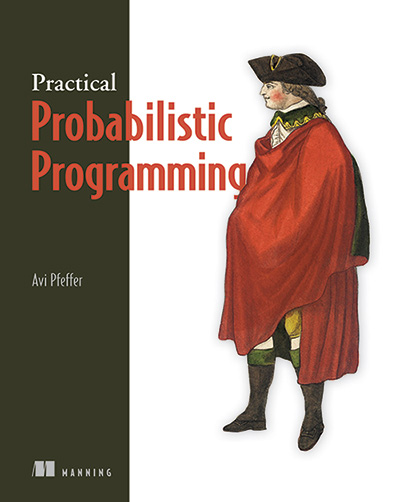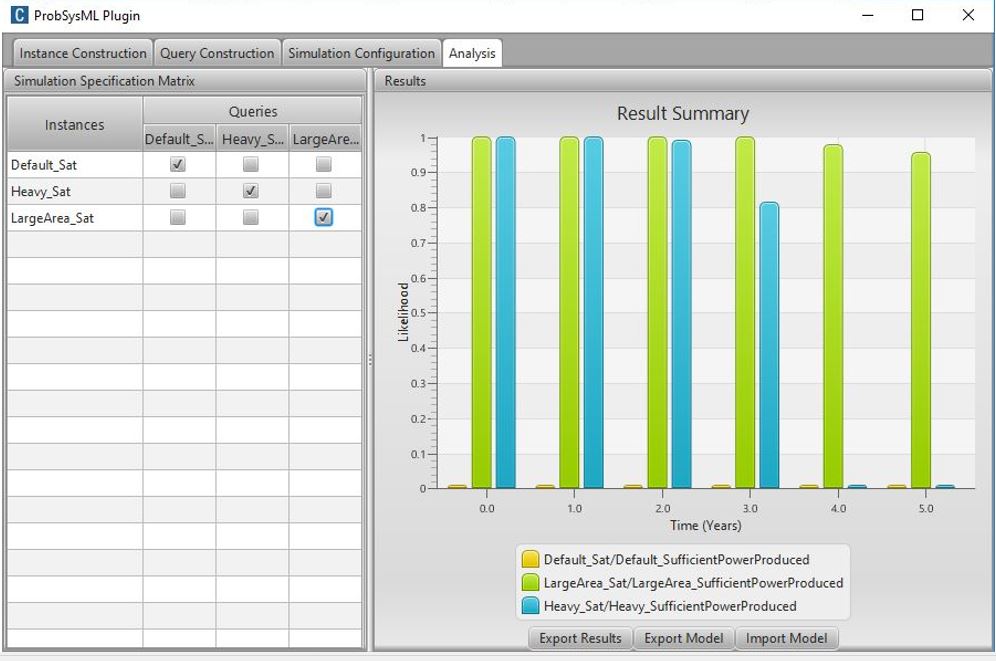System modelers can create better designs faster with ProbSysML

“We’re helping engineers create system models they can use to control and reason about the operating behavior of systems in uncertain environments. ProbSysML provides probabilistic extensions to the standard Systems Modeling Language and compiles to our Figaro™ probabilistic programming language.” ~ Dr. Avi Pfeffer, Chief Scientist
The US Department of Defense (DoD) is reliant on increasingly complex systems to support its operations. Designing, building, and maintaining these systems requires rigorous design and testing disciplines, such as model-based systems engineering (MBSE). MBSE applies conceptual models to define the structure, processes, functions, and context of complex systems, enabling development of mission critical systems with assurances of safety and effective performance. However, existing MBSE frameworks cannot reason accurately about the desired capabilities of a modeled system, when the system’s behavior is uncertain.
For example, a system modeler designing a satellite uses MBSE tools and methods to create a detailed description of the satellite’s power system. At the end of the design process, the modeler wants to know, “Will this solar panel configuration generate enough power to support a five-year mission in space?” Answering this question requires modeling highly uncertain factors, such as whether a solar panel’s performance will degrade in the harsh environment of space and what the rate of degradation is. Being able to obtain meaningful answers to questions about a model’s higher-order capabilities that take into account uncertainty is critical to performing verification and validation of a model.
Enhancing Model-Based Programming Languages
The Charles River Analytics solution, called ProbSysML, will enhance model-based programming languages by providing support for probabilistic programming. Model-based programming languages are widely used in software design to add safe and effective performance features to mission critical systems. Enhancing these languages with probabilistic capabilities allows engineers to reason about the behaviors of these systems when operating under uncertainty, such as a minesweeping system that relies on noisy sensors for target identification.
Extending Conventional SysML
Enhancing MBSE frameworks with effective probabilistic reasoning capabilities has been a challenge for researchers. Many probabilistic reasoning frameworks have not provided the required expressive power or algorithms to satisfy real-world requirements.
ProbSysML enables representation of uncertainties in both structure and behaviors of complex systems, as well as interactions between structures and behaviors.
- ProbSysML annotations to SysML models describe probabilistic distributions across model attribute values and relationships.
- Probabilistic program execution returns predictions of system performance based on probabilistic inference.
- Rapid, accurate analyses relating system model changes to predicted performance under uncertainty provides guidance for future design decisions, enabling system modelers to create better designs faster.

ProbSysML displays the likelihoods that satellites with different solar panel configurations can function for the duration of a five-year mission.
Compiling ProbSysML into Figaro
ProbSysML provides probabilistic extensions to the standard SysML systems modeling language and compiles it to our Figaro™ probabilistic programming language. Figaro is a free, open-source probabilistic programming language for probabilistic modeling. Figaro makes it possible to express probabilistic models using the power of programming languages, giving a modeler expressive tools to create various types of models.
This material is based upon work supported by the Defense Advanced Research Projects Agency (DARPA) and the Army Contracting Command-Aberdeen Proving Grounds (ACC-APG) under Contract No. W911NF-15-C-0002. Any opinions, findings and conclusions or recommendations expressed in this material are those of the author(s) and do not necessarily reflect the views of the Defense Advanced Research Projects Agency (DARPA) and the Army Contracting Command-Aberdeen Proving Grounds (ACC-APG).
